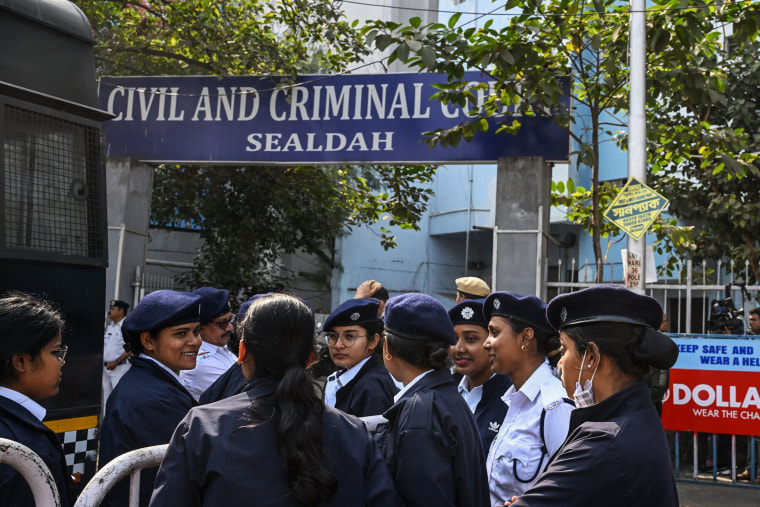KOLKATA, India — An Indian court on Monday imposed a life sentence on a police volunteer convicted of the rape and murder of a doctor at the hospital where she worked in the eastern city of Kolkata. The death penalty demand was rejected on the grounds that this was not the case. a rare crime.
The woman’s body was found on August 9 in a classroom of the state-run RG Kar Medical College and Hospital. Other doctors remained absent for weeks to demand justice for her and better security in public hospitals as the crime sparked national outrage. a lack of safety for women.
Sanjay Roy, the police volunteer, was convicted on Saturday by Judge Anirban Das, who said circumstantial evidence had proven the charges against Roy.
Roy said he was innocent and that he had been framed, and asked for leniency.
The federal police, who investigated the case, said the crime fell into the “rarest of all rare cases” category and that Roy therefore deserved the death penalty.

“I don’t consider it a rare crime,” said Judge Das, who sentenced Roy to life in prison on both rape and murder charges. “Life imprisonment, that is, imprisonment until death.”
The judge said he concluded it was not a rare crime after considering all the evidence and circumstances surrounding it. He said Roy could appeal to a higher court.
The verdict was announced in a packed courtroom, with the judge allowing the public to witness the proceedings on Monday. The speedy trial in court was not open to the public.
The physician assistant’s parents were among those present in the courtroom on Monday. Security was stepped up with dozens of police personnel deployed at the court complex.
The parents had previously indicated that they were not satisfied with the investigation and suspected that more people were involved in the crime.
Their lawyer, Amartya Dey, told Reuters on Monday that they had sought the death penalty for Roy and also demanded that those involved in what they called the “bigger conspiracy” be brought to justice.
Protesting doctors had said street protests would continue until justice was done.
India’s federal police cited 128 witnesses in its investigation, 51 of whom were questioned during the fast-track trial that began in November.
Police had also charged the officer in charge of the local police station and the head of the college at the time of the crime with destruction of the crime scene and tampering with evidence.



